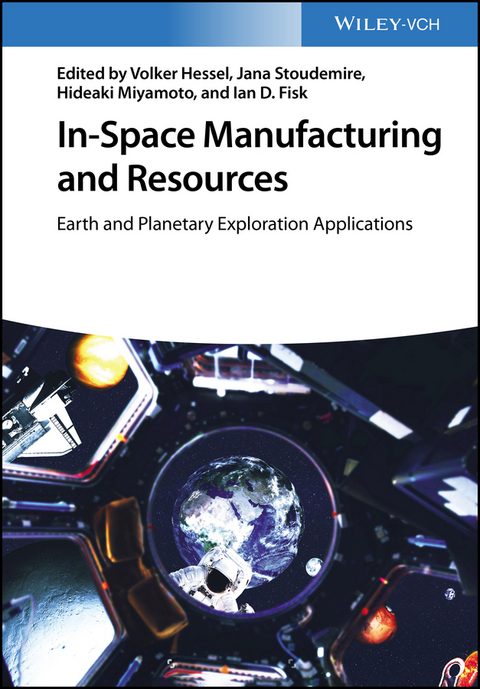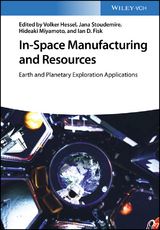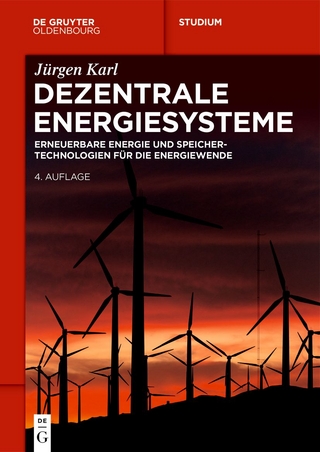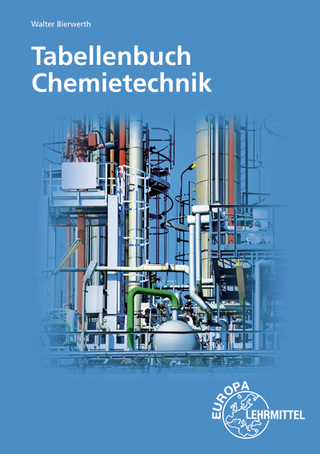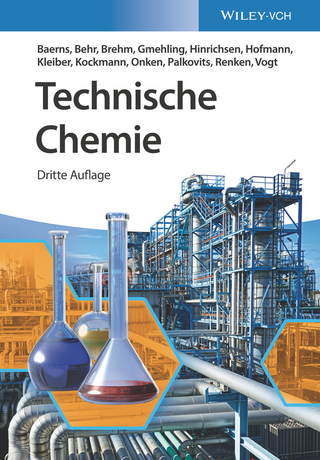In-Space Manufacturing and Resources
Wiley-VCH (Verlag)
978-3-527-34853-4 (ISBN)
Prof. Dr. Volker Hessel studied chemistry at Mainz University. In 1994 he entered the Institut für Mikrotechnik Mainz GmbH, and became Director R&D. In 2011, Prof. Hessel was appointed as Professor at Eindhoven University of Technology. In 2018, Prof. Hessel was appointed as Deputy Dean (Research) and Professor in the ECMS Faculty at the University of Adelaide. He is Research Director of Adelaide?s Andy Thomas Centre of Space Resources. He is (co-)author of > 510 peer-reviewed publications (h-index: 76). He received the AIChE Award "Excellence in Process Development Research", and all ERC/FET Grants at EU. He was authority in the 35-man Parliament EnqueteCommission "Future of the Chemical Industry" in Germany. Prof. Hessel?s research is on microfluidic and plasma processes and their application to health, chemistry, agrifood, and space.Jana Stoudemire serves as the Commercial Innovation Officer, Space Tango leading the development of commercial market creation in Low Earth Orbit (LEO) for biomedical and technology research and manufacturing applications. She transitioned from pharma to lead life science research in microgravity initially as part of the team managing the International Space Station U.S. National Laboratory (ISS-NL) and then joined Space Tango to focus on building an emerging market on-orbit representing new sectors of the Space economy. Jana is a member of the National Academies of Sciences, Engineering, and Medicine Committee on Biological and Physical Sciences in Space (CBPSS), Regenerative Medicine Manufacturing Society (RMMS) member, a WOMEN In Advanced Therapies (WIAT) leadership mentor, and previous New Organ Alliance Oversight Committee Member along with co-chair of the Microgravity Enabling Technology Committee. Professor Hideaki Miyamoto is currently the Director of the Department of Systems Innovation, the University of Tokyo. He became an Assistant Professor at the University of Tokyo before receiving his Ph.D. in Earth and Planetary Science at the University of Tokyo in 2000. He joined the Department of Systems Innovation, the University of Tokyo, as a professor from 2016 and was an Adjunct Professor at the Japanese Aerospace Exploration Agency (JAXA) from 2017 to 2019. He is involved in many space missions, such as asteroid missions (Hayabusa, Hayabusa-2, and HERA), lunar missions (Kaguya, LUPEX), and Mars missions (MMX). He publishes >110 peer-reviewed publications (h-index 32), mostly in planetary science. Professor Ian Fisk joined the School of Biosciences at the University of Nottingham in 2010 after working in the food industry as a senior flavour chemist for Kraft Foods. Professor Fisk was appointed Director of Research in 2017 and currently leads the food chemistry research group. He is (co-)author of 90 peer-reviewed publications (h-index: 33). As Professor of Flavour Chemistry he has broad ranging research interests in flavour management (plant biology, agricultural techniques, food production through to consumption) and fundamental food chemistry to support novel processing technologies and commercial products.
Introductory Statement: National Aeronautics and Space Administration
Introductory Statement: European Space Agency
Introductory Statement: Japan Aerospace Exploration Agency
Introductory Statement: Australian Space Agency
PART 1: SPACE MEDICINE AND HUMAN HEALTH
1. Human Health in Space
2. Space Medicine and Countermeasures
3. Frontier Medical Technologies to Support Space Exploration
PART 2: SPACE BIOLOGY
4. Plant Biology and a New Approach to Space Farming
5. Stem Cell Biology and Tissue Engineering in Space
PART 3: SPACE CHEMISTRY
6. Chemistry Related Innovations in Space. Benefits of Flow Chemistry
7. Catalysis in Space Environments
PART 4: SPACE MINING
8. Mining and Microbiology for the Solar System Silicate and Basalt Economy
9. Near-Earth Asteroids as Promising Candidates for Space Resources
10. Space Mining of Phosphorus from Moon Crust?Spillover of Learning from Earth
11. Lunar Resources in Support of Human Interplanetary Settlement & Limitations
PART 5: SPACE FARMING & FOOD
12. PONDS: A New Method for Plant Production in Space
13. Space Food for the Future: Nutritional Challenges and Technological Strategies for Healthy and High-Quality Products
PART 6: ADVANCED MATERIALS
14. Metal Alloy Synthesis in Microgravity
15. Layer-by-Layer Deposition in Microgravity for Enhanced Thin Film Production
16. 3D Bioprinting Aboard the International Space Station using the Techshot BioFabrication Facility
PART 7: SPACE CONSTRUCTION
17. Beyond the ISS: The World's First Commercial Space Station
18. Leveraging Open Innovation to Incentivize Advances in Additive Construction in Space and on Earth
PART 8: SPACE POLICY, LAW, AND ECONOMICS
19. The Impact of the Artemis Accords on Resource Extraction
20. Space Resources: Physical Constraints, Policy Choices, & Ethical Considerations
The Future Of Space Exploration: A Young Perspective
| Erscheinungsdatum | 17.08.2022 |
|---|---|
| Verlagsort | Weinheim |
| Sprache | englisch |
| Maße | 170 x 244 mm |
| Gewicht | 932 g |
| Themenwelt | Naturwissenschaften ► Chemie ► Technische Chemie |
| Technik ► Maschinenbau | |
| Schlagworte | Aeronautic & Aerospace Engineering • Astronomie u. Astrophysik • Astronomy & Astrophysics • chemical engineering • Chemische Verfahrenstechnik • earth sciences • Geologie u. Geophysik • Geology & Geophysics • Geowissenschaften • Luft- u. Raumfahrttechnik • Maschinenbau • mechanical engineering • Physics • Physik • Process Engineering • Prozesssteuerung • Raumfahrt |
| ISBN-10 | 3-527-34853-0 / 3527348530 |
| ISBN-13 | 978-3-527-34853-4 / 9783527348534 |
| Zustand | Neuware |
| Informationen gemäß Produktsicherheitsverordnung (GPSR) | |
| Haben Sie eine Frage zum Produkt? |
aus dem Bereich
